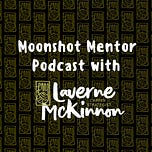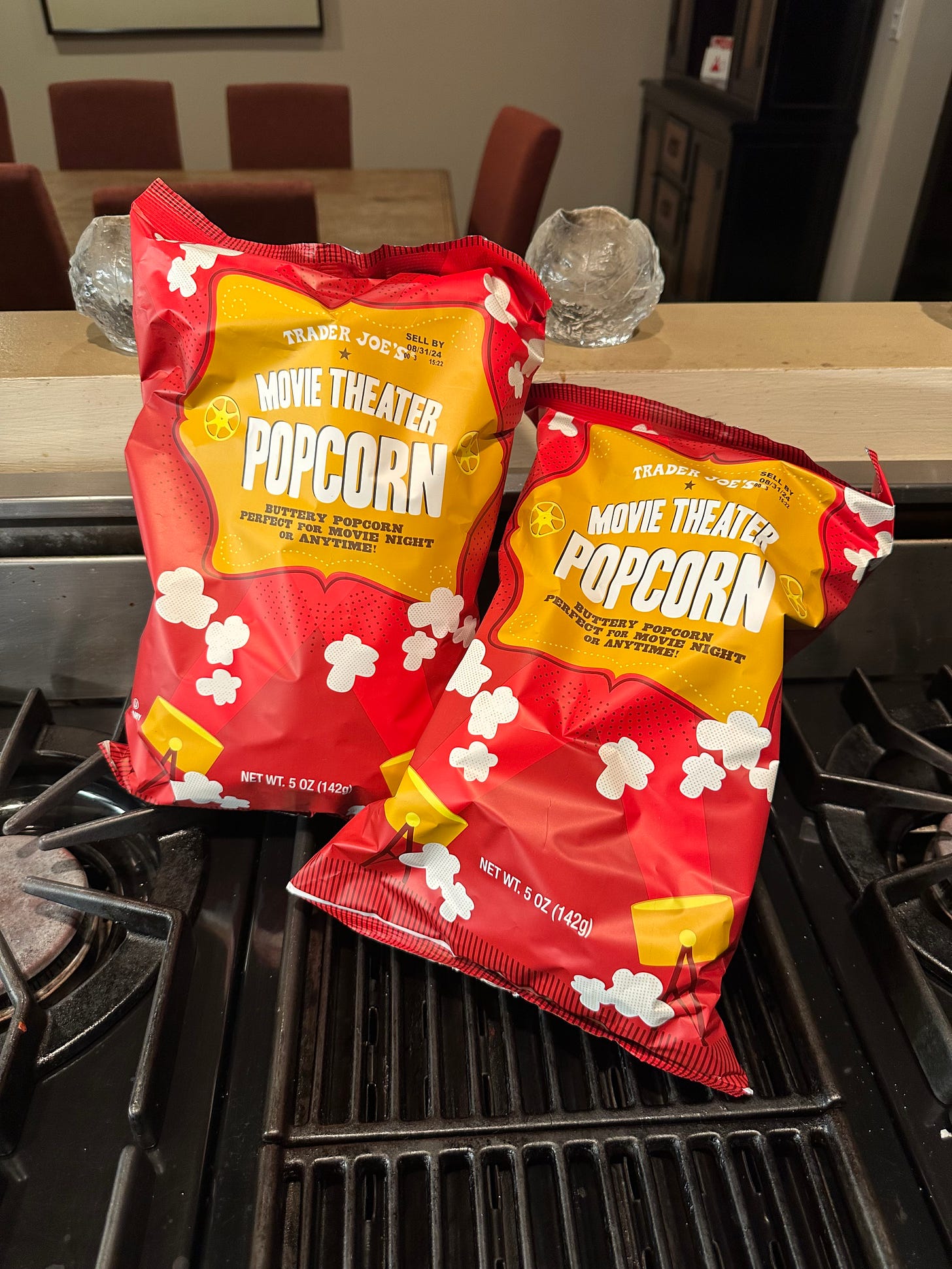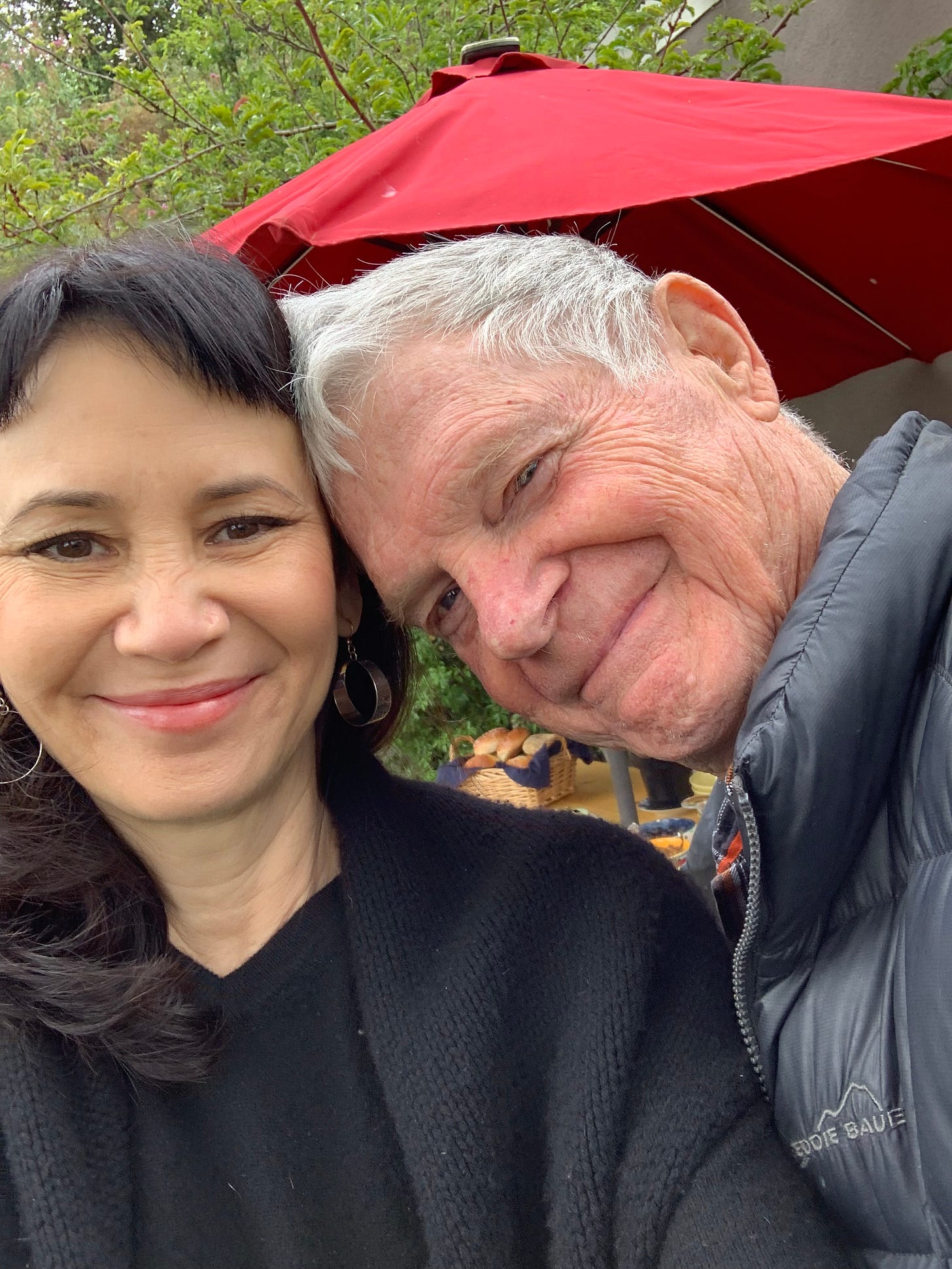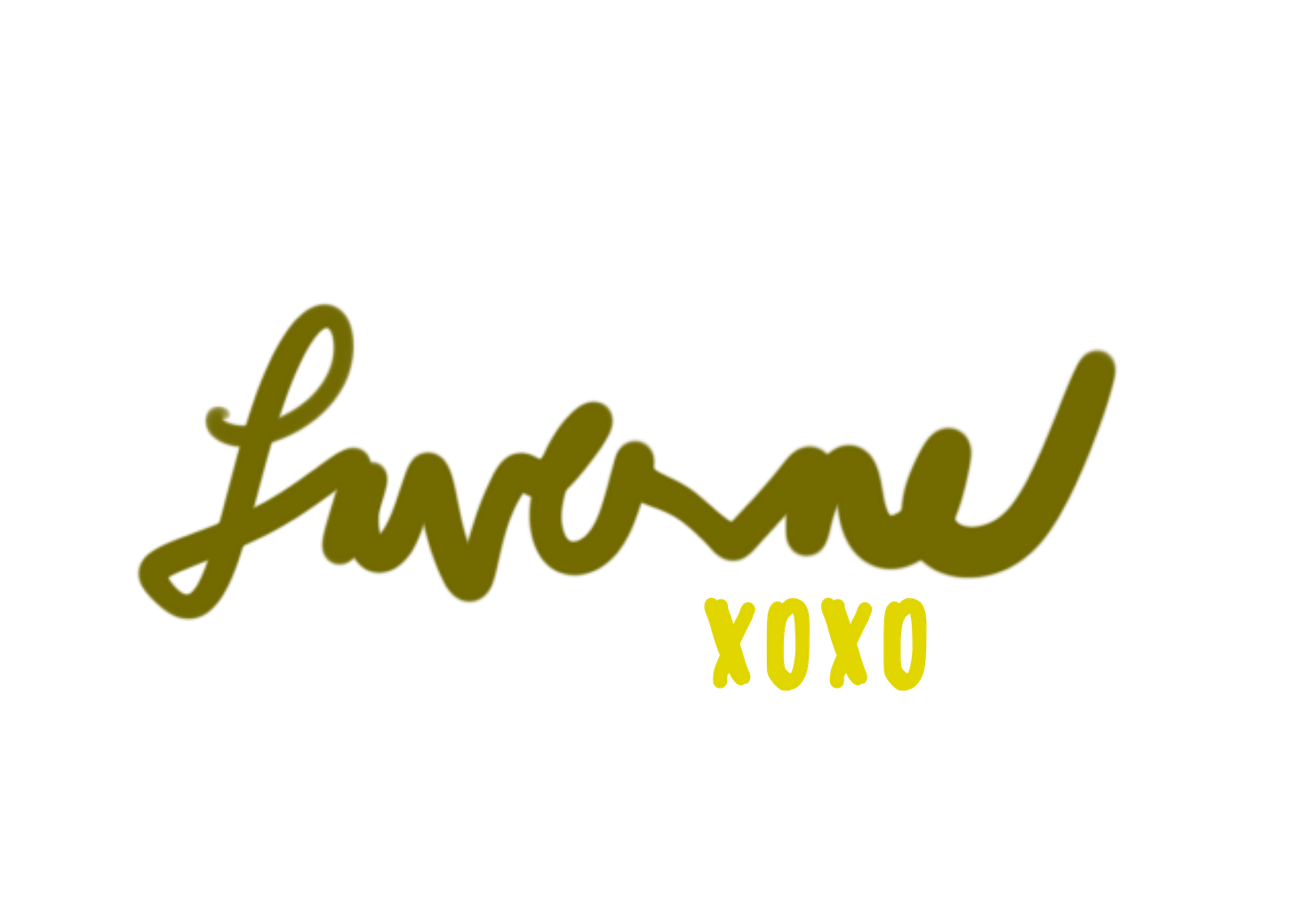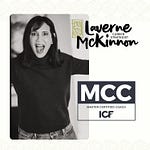I’ve just had a major personal breakthrough by doing something totally out of character for me. I shut my mouth trap. Here’s what happened.
My husband, Chuck, and I were running errands: Trader Joe’s, CVS, Kinko’s, and then picking up chicken kabob pita sandwiches from Amir‘s Falafel. Since all four places were within walking distance, we parked the car in the Kinko’s lot and divided up the jobs. I took CVS (which was super easy and fast) and Trader Joe’s because I’m particular about our binge snacks and don’t always trust Chuck to pick up the specific movie theater popcorn supply I like. Chuck went to Kinko's, and then we planned to go to Amir's together.
A Mistake Is Discovered
After my two errands, I circled back to put the packages in the trunk of the car and see if I could help Chuck at Kinko’s or if I should head to Amir’s alone. When I got to the parking lot, I noticed both the car and the headlights were left on. Yikes! While I’ve certainly forgotten to turn off the lights (and even sometimes the car itself!) I was still annoyed at Chuck and very eager to tell him all about the mistake he made.
Now, this is when comedian and actor Craig Ferguson came in to save me from myself. Ferguson has this great bit in which he suggests asking three questions before saying anything - especially to someone you care about:
Does this need to be said?
Does this need to be said by me?
Does this need to be said by me right now?
(Want to watch the full special where he does the bit? It’s available on YouTube here. Fun fact: It’s a project I acquired when I was head of programming at EPIX.)
Major Breakthroughs
And this is where I had the breakthrough. Really a triple breakthrough since I’m an overachiever. 😜 As I was skipping up the steps to Kinko’s to let my husband know how he had left the car on, I was able to pause. Something in my body felt a little too gleeful and pompous, and it raised a little red flag.
Quick side note: I’ve been practicing listening to my body ever since I fainted a few months ago, and it's really helped me care for myself better. These feelings of arrogance were a clue that something was misaligned. Proud of myself for noticing it.
Second breakthrough: I remembered Ferguson’s bit. Yay me! By pausing long enough to listen to my body, my brain kicked into high gear to give me a clue as to how to proceed. This is how I answered the questions:
Does this need to be said? Maybe?
Does this need to be said by me? Perhaps.
Does this need to be said by me right now? No.
Now, some of you might be thinking it’s important that Chuck knows that he left the car on because it will prevent him from leaving it on in the future. Also, the battery could have run out, and the car would need a bump or a tow. There’s also burning gas and wasting energy. And worse case scenario, the car could have been stolen.
Are Gremlins In The Mix?
When I went through Ferguson’s checklist and came to the conclusion that I did not need to tell Chuck of his mistake at that moment, I also needed to check that I wasn’t letting a gremlin make a choice for me. (Check out this blog to learn more about gremlins.)
One of the challenges in my relationship with Chuck is that I over-index on valuing harmony to avoid conflict. So, I have frequently said or not said things to preserve the peace of our relationship.
By taking a longer pause, I felt confident that a gremlin was not at work. It felt like I was making a choice not to sweat the small stuff and step into a partnership in a more wholehearted way. I could have my partner’s back without giving myself a medal.
The Really Big A-Ha Moment
And that’s when I had my third a-ha moment. As a recovering perfectionist and people-pleaser, I’m constantly looking for ways to be validated. And that’s what would’ve been motivating my burning need to tell Chuck what I had discovered and how I had fixed it, and maybe even a little hint of how he needs me.
What is it about me and other people that drives us to let someone know that we’ve spotted their mistake? For me, I think it’s wanting to be right and to receive validation. It gives me a sense of superiority and proof I’m capable.
Honestly, I’ve noticed this with other folks as well when they give me unsolicited feedback. There’s a complicated sense of “I want to help and support you” along with a judgy sense of “you’re wrong.”
So what’s the price of telling someone they are making or made a mistake? It’s actually quite costly. By pointing out other people’s mistakes, it can:
Alienate someone you care about
Cause irreparable friction and tension
Send them in the “wrong” direction because you’re not paying attention to their values and what’s important to them
Make someone feel shamed and judged as opposed to empowered
How Does This Apply To Your Career?
While this isn’t a workplace story, I do believe asking yourself Ferguson’s three questions will help you in long-term career success. Pointing out someone else’s mistake without an explicit request is a recipe for a career setback.
It’s important to get real with yourself about why you may find it hard to resist chiming in. Understanding your motivation will help you determine whether you’re honoring a value or actually listening to a “gremlin” voice.
If you truly want to support someone in their growth, ask them how you can be of assistance.
A Happy Ending
To wrap things up, I never told Chuck about leaving the car on until I asked him to proofread this blog. I did go to Amir’s to get our chicken kabob pita sandwiches while he finished up at Kinko’s. We had a lovely dinner, and I know I made a good decision because I tried something new.
There will definitely be times in the future when I point something out to my husband if I truly believe it will impact our well-being. And I invite him to do the same. But realistically, I’d say 99 times out of 100, this thing I want to say does not have to be said, by me and right now.
Bottom Line
To wrap it all up in a neat bow, here are my six key takeaways from what was supposed to be a mundane afternoon of running errands:
1. The Power of Pause: By taking a moment to pause and reflect before reacting, we can avoid unnecessary conflict and deepen our understanding of ourselves and others.
2. Empathy over Ego: Choosing empathy over the need to be right allows for deeper connection and understanding in relationships.
3. Partnership: Prioritizing partnership in relationships can lead to greater fulfillment and growth, even if it means letting go of the need to always be in control or correct. And getting a medal for being a good partner.
4. Validation and Vulnerability: Recognizing our own tendencies to seek validation through correcting others' mistakes can lead to greater self-awareness and authenticity.
5. The Price of Criticism: Pointing out others' mistakes without consideration can damage relationships and hinder personal and professional growth.
6. The Wisdom of Timing: Knowing when to speak up and when to remain silent requires discernment, which can lead to more effective communication and healthier relationships.
Remember to practice mindfulness, empathy, and vulnerability in your personal and professional interactions.
It will ultimately foster deeper connections and personal growth.
Journal Prompts
Here are questions to help you understand your relationship with pointing out other people’s mistakes:
1. Reflect on a recent situation where you felt the urge to correct someone or point out their mistake. What were your motivations behind wanting to do so? How might the outcome have been different if you had paused to consider the three questions posed by Craig Ferguson?
2. Consider a relationship in your life where you tend to prioritize harmony over expressing your true feelings or opinions. How does this dynamic impact the authenticity and depth of the connection? What steps can you take to cultivate a healthier balance between preserving harmony and honoring your own voice?
3. Think about a time when you received unsolicited feedback or criticism from someone. How did it make you feel? Did it inspire growth or create tension in the relationship? Reflect on how you can approach giving feedback in a more empathetic and constructive manner.
4. Explore your relationship with validation and recognition. In what ways do you seek validation from others? How does this drive influence your behavior and interactions? Consider how you can cultivate self-validation and confidence independent of external praise.
5. Imagine a scenario where you're faced with a decision to speak up or remain silent about someone else's mistake. How can you apply the lessons from this blog to navigate the situation with empathy, discernment, and respect for the other person's dignity? Reflect on the potential impact of your choice on the relationship and your own growth journey.
🙌🏾 Questions? Would you like additional support in accessing resilience? I offer private coaching sessions as well as in-person and virtual group work. Reach out directly here to set up a complimentary consultation.
If you’re resonating with what you’re reading, please consider subscribing. What’s that mean?
🙌🏾 You’ll receive regular emails (with lots of heart and a bit of humor) that share a tool or insight from my coaching practice.
🙌🏾 Typically the blog and blogcast will have a question at the end to provoke thought that supports you in your growth.
🙌🏾 Updates on offerings, free stuff, recommendations, referrals.

